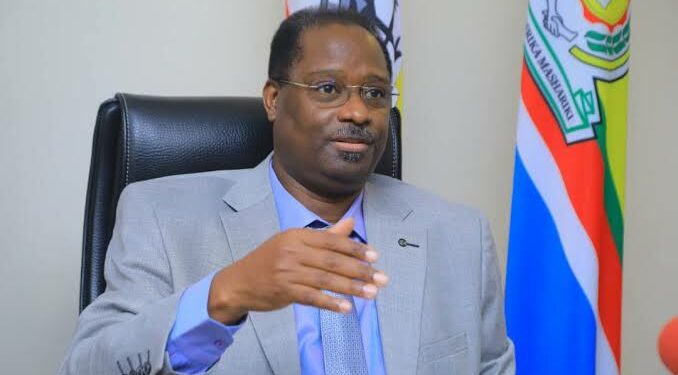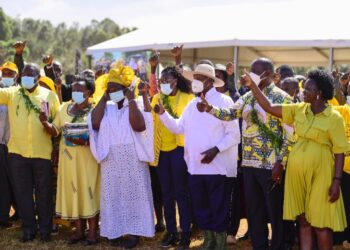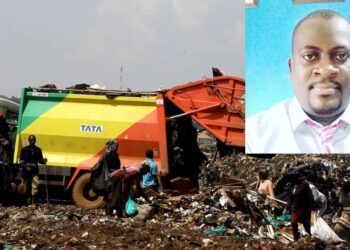In a resounding show of solidarity, Uganda’s Ambassador to South Sudan, Brigadier General Ronnie Balya, has stepped forward as the bearer of hope and progress for the latter’s economy.
With unwavering determination, he presented a far-reaching nine-point program, a lifeline extended on behalf of the Ugandan government, with a singular aim – to breathe life back into South Sudan’s beleaguered economy.
This grand revelation unfolded at the culminating session of the National Economic Conference in Juba on September 8th, a momentous event that promised to be a harbinger of transformation.
Ambassador Balya, resolute and unyielding, emphasized the urgency of tackling the formidable challenges that beleaguer South Sudan’s economic revival.
The proposed resolutions were nothing short of a roadmap, a meticulously designed course set to guide South Sudan towards a horizon of sustainable growth.
“First and foremost,” declared the Ambassador, his voice echoing with authority, “every family must wield a budget, a ledger of incomes and expenditures. Know the essence of your production, discern the input and the yield. Let every able-bodied soul partake in the market’s dance.” His words were a clarion call for economic participation, a rallying cry to mobilize every household.
He turned then to matters of health, proclaiming, “Immunization and healthcare must be South Sudan’s unwavering creed. For productivity to flourish, a nation’s heartbeat must be robust and healthy.” It was a prescription for vitality, a blueprint for a thriving population.
Education was not to be overshadowed. “In the battle against ignorance,” the Ambassador proclaimed, “Universal Primary and Secondary Education stands as the unassailable fortress.” His words rang with the resonance of enlightenment, a clarion call to empower the minds of a nation.
Ambassador Balya’s gaze then shifted towards the scarcity of raw materials, the bedrock of industrialization. He urged South Sudan to sow the seeds of national parks across its ten states – bastions of progress fortified with infrastructure, electricity, water, and a thoroughfare to beckon potential investors.
“Cast your vision beyond the familiar borders,” he implored, eyes gleaming with conviction. “Conduct market surveys, explore the realms of regional and global markets, where your wares can fetch the foreign exchange that is direly needed.” It was a call for economic exploration, an invitation to transcend boundaries.
The drumbeat of progress reverberated in his counsel on infrastructure. “Let the arteries of development course through the nation,” he urged, “Waterways, roads, and railways – the conduits of progress. Seek the bounty of clean and economical energy, let hydroelectricity power the engines of industry and service.” It was an ode to progress, a pledge to lay the foundations of a thriving economy.
With a fervor that seemed to ignite the very air, Ambassador Balya championed the cause of citizen empowerment, anchored in “transparency and accountability.”
He envisioned functional cooperatives as crucibles of job creation and wealth generation, an endeavor that promised to elevate the fortunes of many.
In his closing words, the Ambassador struck a resonant chord. “Diversify, let new streams of revenue flow,” he urged, his voice carrying the weight of wisdom. “South Sudan, landlocked and yet boundless in potential, must chart a new course. The days of oil dependency must wane, replaced by the verdant fields of agriculture and the thriving realms of macroeconomic sectors.”
As he stood before the gathering, his words carried the echoes of history. “In 1986, Uganda forged a new path, a ten-point program that illuminated the way forward after the crucible of war,” he reflected.
The parallels were striking, a testament to the transformative power of vision and action. Uganda had paved the way; now, South Sudan stood at the precipice of its own dawn.
Do you have a story in your community or an opinion to share with us: Email us at editorial@watchdoguganda.com













